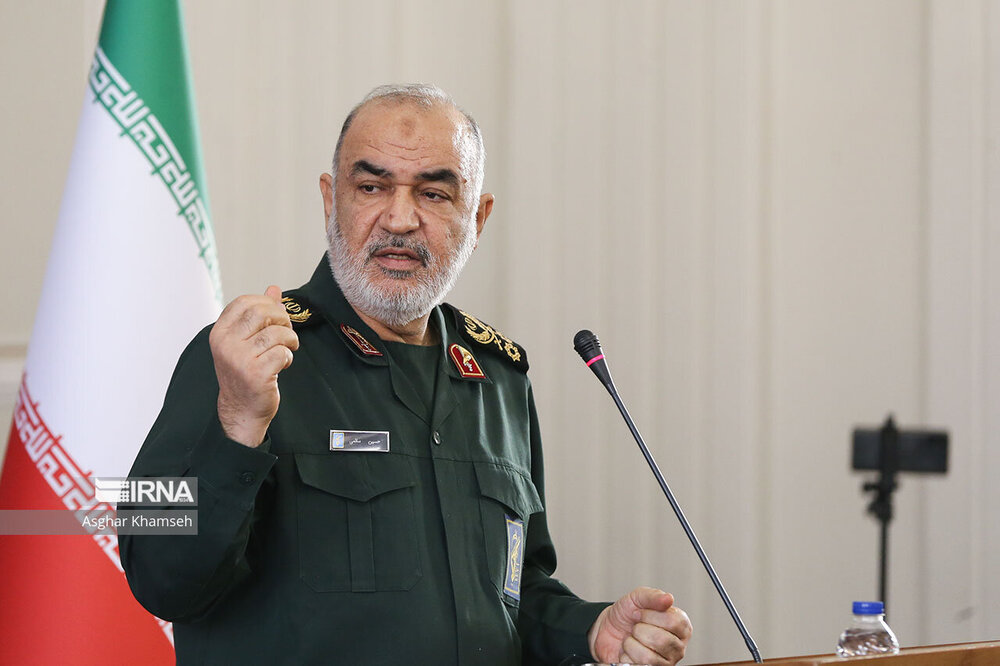رويترز: الحرس الثوري الإيراني يتحول من العمليات العسكرية إلى إمبراطورية أعمال كبيرة
رويترز/20 كانون الثاني 2023
Iran’s Revolutionary Guards: from military operations to business empire
Reuters/January 20/2023
Iran’s armed forces general staff, which coordinates activities between its conventional army and the Revolutionary Guard Corps, warned the European Union on Thursday not to list the elite force as a terrorist entity, state media reported.
On Wednesday, the European Parliament called for the EU to list the Revolutionary Guards as a terrorist organisation, blaming it for the repression of domestic protesters and the supply of drones to Russia’s military engaged in Ukraine.
Following are some questions and answers about the powerful Islamic Revolutionary Guards Corps (IRGC), Iran’s dominant military force, with its own army, navy, air force and intelligence wing:
It was set up shortly after the 1979 Islamic Revolution to protect the Shi’ite clerical ruling system and provide a counterweight to the regular armed forces.
It answers to Supreme Leader Ayatollah Ali Khamenei. The IRGC has an estimated 125,000-strong military with army, navy and air units. It also commands the Basij religious militia, a volunteer paramilitary force loyal to the clerical establishment which is often used to crack down on anti-government protests.
Basijis mounted “human wave” attacks against Iraqi troops during the 1980s war. In peacetime, they enforce Iran’s Islamic social codes. Analysts say Basij volunteers may number in the millions, with 1 million active members.
The Quds Force is the foreign espionage and paramilitary arm of the IRGC that heavily influences its allied militia across the Middle East, from Lebanon to Iraq and Yemen to Syria. Its members have fought in support of President Bashar al-Assad in Syria’s civil war and have backed Iraqi security forces in their battle against Islamic State militants in recent years.
Its top commander, Major-General Qassem Soleimani, was killed by the United States in a drone attack in Iraq in 2020. His death raised fears of a major conflict. The killing of all American leaders would not be enough to avenge the assassination of Soleimani, a senior Iranian Guards commander said later.
The IRGC, branded a terrorist group and sanctioned by the United States, has sought for years to shape the Middle East in favour of Tehran. For instance, it founded Lebanon’s Hezbollah in 1982 to export Iran’s Islamic Revolution and fight Israeli forces that invaded Lebanon that same year.
Hezbollah is now a major military force which has played a role in regional conflicts.
WHAT ARE THE IRGC’S MILITARY CAPABILITIES?
The IRGC oversees Iran’s ballistic missile programme, regarded by experts as the largest in the Middle East.
The Guards have used the missiles to hit Sunni Muslim militants in Syria and Iranian Kurdish opposition groups in northern Iraq. The United States, European powers and Saudi Arabia blamed Iran for a 2019 missile and drone attack that crippled the world’s biggest oil processing facility in Saudi Arabia. Iran denied any involvement in the assault.
Former U.S. President Donald Trump pointed to Iran’s missile programme as one of the points not addressed in its 2015 nuclear deal with world powers and which he cited as a reason for pulling out in 2018.
The Guards have extensive conventional combat hardware and capabilities which were showcased in their involvement in the conflicts in Syria and Iraq.
WHAT IS THE IRGC’S POSITION IN IRAN’S POLITICAL SYSTEM?
Former Revolutionary Guards officers occupy key positions in Iran’s establishment, from the government to parliament. Most of President Ebrahim Raisi’s cabinet are former IRGC officers.
The IRGC’s mandate to protect revolutionary values has prompted it to speak out when it felt the system was threatened.
WHAT ABOUT BUSINESS INTERESTS?
After the 1980s Iraq war, the IRGC became heavily involved in Iran’s reconstruction and has expanded its economic interests to include a vast network of businesses, ranging from oil and gas projects to construction and telecommunication. Its business interests are worth billions of dollars.
N.B: Pictures Enclosed/Chief Major General Hossein Salami, commander of the Islamic Revolution Guards Corps (IRGC)






















